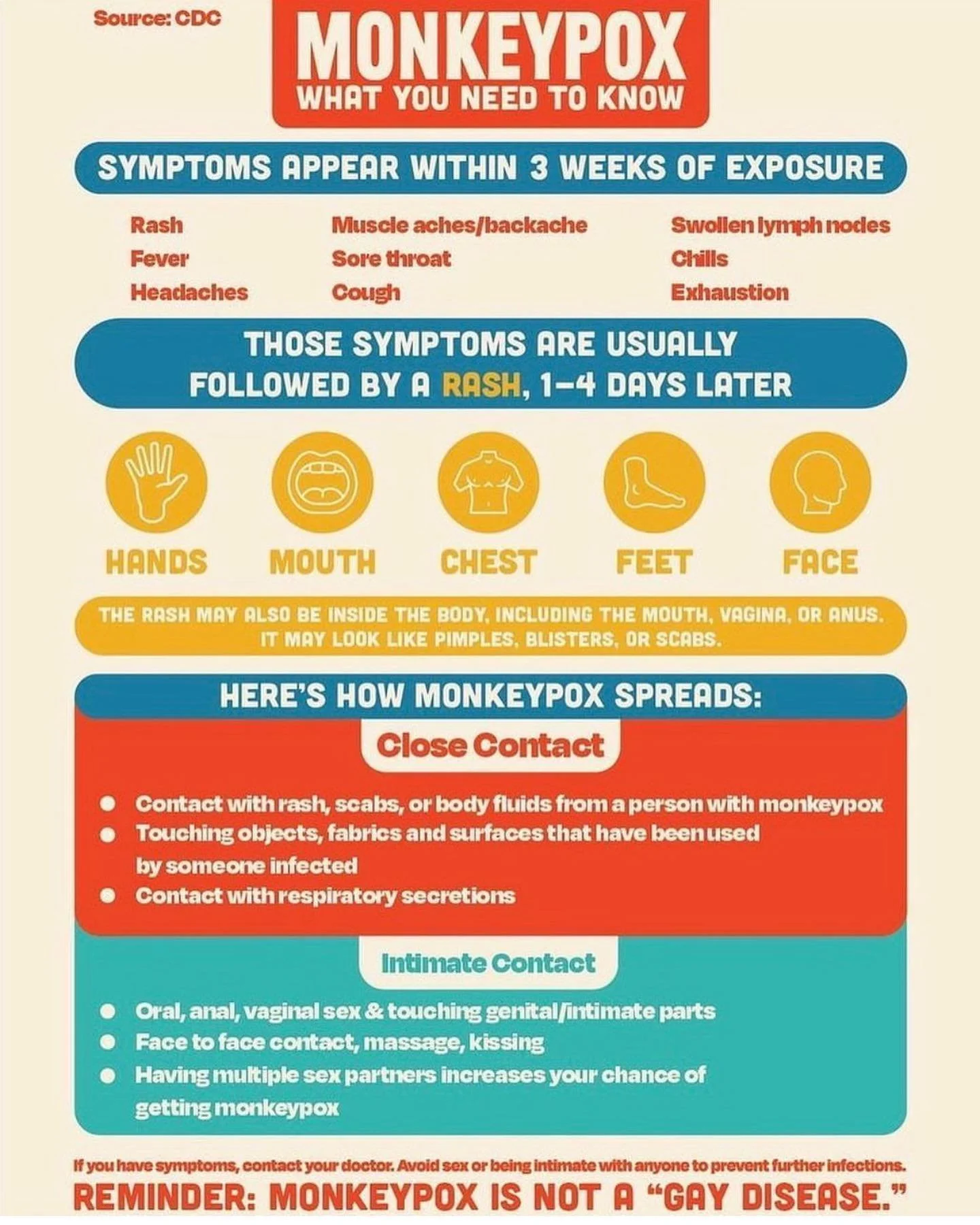APL: Dismantle the Anti-LGBTQIA+ Stigma Around Monkeypox!
On August 4, 2022, the U.S. declared the outbreak of the Monkeypox virus a national health emergency. Leading up to this declaration, there has been a rise in chauvinist disinformation concerning the nature of the virus and its origins, how it spreads, and the communities it affects. This disinformation has become a way for reactionaries to attack the LGBTQIA+ community and create another stigma that will negatively impact the lives of all of our community members. Currently, queerphobic chauvinists are using cases of children catching monkeypox as evidence of “grooming”, even though the disease is not an STD. Historically, the right-wing has used the transmission rates of diseases and viruses through the queer community to stigmatize, marginalize, and alienate the queer sections of the working class from the rest of itself. The LGBTQIA+ Commission of the American Party of Labor finds it necessary to promote scientific and factual information concerning the Monkeypox virus and by doing so break down the negative stigma that is being constructed against the LGBTQIA+ community in this time of crisis.
Monkeypox was first identified as a virus affecting humans in the Democratic Republic of the Congo in 1970 when a nine month old boy contracted the virus. The World Health Organization classifies Monkeypox as a zoonosis, a virus that has its origins in animals and has spread into humans. The original animal hosts of the Monkeypox virus are thought to be rodents and non-human primates. The virus itself can be transmitted from person to person by close contact with “lesions, body fluids, respiratory droplets, and contaminated materials such as bedding” according to the World Health Organization. The UK Health Security Agency reports that of the patients surveyed, 98% (out of 152 interviewed cases) reported having sex during the incubation period of 2-4 weeks. While the virus can be found in sexual fluids, it is uncertain if it is transmitted directly via the exchange of fluids or through close contact. The City of Chicago Public Health department reports that the disease can be spread through close contact, including body fluids, but also through hugging, kissing, shared bedding and clothing. It can also crucially be spread through respiratory droplets such as through coughing or sneezing. Of the 152 patients surveyed by the UKHSA, 151 reported being MLM (Men Loving Men); the obvious question is— why this group in particular if it is not a “gay disease”? Sexual networks among MLM individuals are not different in nature from other groups, however they are much more densely connected, notes Lilith Whittles, an infectious disease modeler with the Imperial College London. Although currently concentrated in MLM networks, this virus can spread to other close networks, be it sexual, or nonsexual such as in gyms, athletic events, and prisons as has happened before both with HIV in the 1980s and Staphylococcus aureus in the 2000s.
Due to the widespread public health risk that this virus has caused, mass vaccination would be ideal, regardless of sexual orientation, gender, race, or age. Therefore, the American Party of Labor calls on the U.S. Government to prioritize expanding vaccine access to the entire population. Many public health departments nationwide have an ongoing waitlist for the vaccine that other at-risk people can be added to, such as pregnant people, children, immuno-compromised people, and the elderly. An increased demand for the vaccine indicates that the people support the prioritization of public health and will not accept further neglect of our health and safety from those in power. CDC guidance, as well as eligibility requirements for the vaccine, state that it is only those who are most at-risk who should get vaccinated due to limited supply of doses in the U.S. For instance, the San Francisco Public Health Department lists the eligibility criteria for the vaccine as:
Are gay, bisexual and other men who have sex with men and trans people who have sex with men and have had multiple (more than one) sexual partners in the past 14 days
Are sex workers of any sexual orientation or gender
Have been identified as a close contact of someone who has monkeypox (suspected or confirmed)
Have received a notification from a venue or event of a potential exposure to someone who has monkeypox (suspected or confirmed)
Laboratory workers who routinely perform monkeypox virus testing
Clinicians who have had a high-risk occupational exposure (e.g., examined monkeypox lesions or collected monkeypox specimens without using recommended personal protective equipment)
If you meet any of these criteria, it is essential to get vaccinated as soon as possible to prevent further disease transmission. If you do not meet the criteria listed above, or the criteria listed on your local public health department’s website, calling your local public health department can still be beneficial. This is because everyone is at risk for getting monkeypox, as transmission can be through coughing, sneezing, and close contact. Therefore, everyone should be looking out for signs and symptoms of monkeypox. If you have symptoms of monkeypox, your public health department is also a resource for getting tested. Find the contact information for your local public health department here, and do not hesitate to call.
